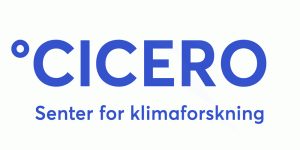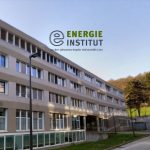CURE features a wide consortium of actors from Norway, Turkey and Austria. This structure is chosen to ensure the quality by maximizing the policy contexts represented in the consortium. CURE comprises 6 academic consortium partners and researchers with highly relevant competencies, all of which have been assigned responsibilities according to expertise
NTNU Social Research (NSR) is one of Norway’s largest research institutes within applied social sciences with about 100 employees. It is a private limited company fully owned by the Norwegian University of Science and Technology (NTNU).
Studio Apertura, the participating department in NTNU Social Research, conducts research on topics such as technological change, energy transitions, innovation, safety and security. Our experience from applied research topics relevant to CURE spans across inter-organizational and distributed collaboration, implementation of new technologies and projects related to sustainability in various branches, as well as energy efficiency. Projects addressing topics related to energy efficiency has been a prioritized area in the last 5-7 years, including industrial energy efficiency, political frame conditions for energy and environmental development, energy infrastructures and flexibility markets, energy cultures and energy behaviour.
In addition, we have substantial and varied experience with dissemination and user engagement work from various projects, as well as methodological experience in qualitative methods.
NTNU Social Research manages the CURE project, and has lead in WP1, WP2, WP 6 and WP7.

CICERO Center for Climate Research is Norway’s leading institute for interdisciplinary climate research. CICERO’s main task is to deliver new knowledge to those working to solve the climate challenge and strengthen international climate cooperation. CICERO’s main task is to deliver new knowledge to those working to solve the climate challenge and strengthen international climate cooperation. CICERO is an independent research foundation affiliated with UIO, contributing to the green transition through research, consulting and information on climate-related global environmental issues and international climate policy. CICERO is internationally recognized within these fields of study, and their researchers contributed to the UN’s fifth main report and have been contributing to the panel’s reports since 1992. Design of international agreements, atmospheric chemistry, societal effects of climate change and green investments are CICERO’s core areas of expertise.

Through knowledge, responsibility, and commitment UIO aims to contribute to a sustainable future. As a leading European university, UIO will for the next ten years, promote independent, pioneering, and long-term research and offer outstanding education. We shall strengthen the dialogue with the outside world and contribute to the use of knowledge.
With the emergence of more comprehensive energy and climate policies, we need new knowledge about societal, political and judicial aspects on how sustainable energy solutions can be accepted, socially integrated and put into use in society. UiO will contribute to the development of knowledge on how to accelerate the transition to a low-carbon society.

Established as the first foundation university in Izmir and in Aegean Region of Turkey in 2001, Izmir University of Economics (IUE) currently has 7 Faculties, 2 Schools, 3 Vocational Schools, 4 Graduate Schools, and 8 Research Centres.
IUE initiated energy-related interdisciplinary research and studies in 2011. “Sustainable Energy Division” was founded, in line with the basic institutional values of participation, innovation, social responsibility and continued improvement. The division is mainly concerned with investigating the developments in the field of energy markets and policies from an interdisciplinary perspective, covering environmental, social, political, legal, technical and economic aspects. Sustainable Energy Division is affiliated with Graduate School of Social Sciences and Faculty of Business of IUE. The division is a member of European Energy Research Alliance (EERA) and e3s joint programme.

The Energieinstitut an der Johannes Kepler Universität Linz is a not for profit research organisation consisting of about 35 scholars whose sole focus of inquiry is the energy sphere. The institute employs a multidisciplinary structure of three departments (Energy Economics, Energy Law, and Energy Technology) in order to gain holistic insights into the issues under investigation.
The Department of Energy Economics of the Energy Institute has extensive experience in modelling of household energy demand and energy-related behaviours. The department stresses a strong policy and industry focus.

The Norwegian University of Science and Technology (NTNU) is Norway’s largest university, with more than 40 000 students. NTNU has strong research communities in its main profile in science and technology and in social sciences, humanities, natural sciences, teacher education, medicine, architecture and fine arts.
The department of Social Anthropology has challenging and inspiring educational programmes and research projects in the cross-disciplinary fields of technology, energy, organizations and global inequality. The department participates in, and develops, research projects in close co-operation with Norwegian industry, the department is also developing models, tools and methods for how to manage Norwegian industry.
The Department of Psychology is engaged in research across a broad range of disciplines. The Department has a strong tradition of interdisciplinary research and participates in both national and international collaborative projects. The research group for “consumption, environment and traffic” analyses drivers of environmentally relevant consumption from small scale everyday consumption decisions to large-scale investment decisions. Many of these decisions are energy related. Research projects are targeting high impact behaviours in the domains energy use, transport, housing, food, consumption, leisure, culture and empowerment.








